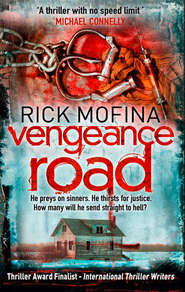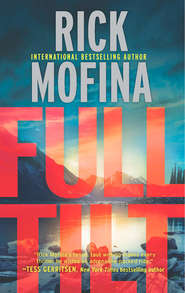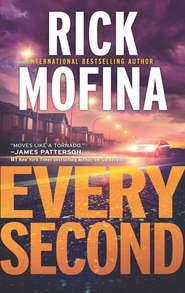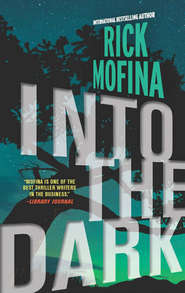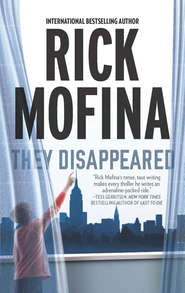По всем вопросам обращайтесь на: info@litportal.ru
(©) 2003-2024.
✖
Six Seconds
Автор
Год написания книги
2018
Настройки чтения
Размер шрифта
Высота строк
Поля
“What?”
“Is everything all right?”
Maggie’s breathing quickened as she called Jake’s cell phone while hurrying to her car. She got several static-filled rings before his voice mail kicked in.
“Jake, please call me and tell me what’s going on! Please!”
Each red light took forever as Maggie drove through traffic. She called her home number, got her machine and left another message for Jake. Wheeling into her neighborhood, Maggie considered calling 911.
And what would I say?
Better to get home. Figure this out. Maybe she’d misunderstood and the guys were at home right now. Was Jake actually in Blue Rose Creek? Why would he tell her he was in Baltimore? Why would he lie?
Turning onto her street, Maggie expected to see Jake’s rig parked in its place next to their bungalow.
It wasn’t there.
The brakes on her Ford screeched as she roared into her driveway, trotted to the door, jammed her key in the lock.
“Logan!”
No sign of Logan’s pack at the door. Maggie went to his room. No sign of Logan or his pack there. She hurried from room to room, searching in vain.
“Jake! Logan!”
She called Jake’s cell again.
And she kept calling.
Then she called Logan’s teacher, then Logan’s friends. No one knew, or had heard anything. She ran next door to Mr. Miller’s house, but the retired plumber said he hadn’t been home all day. She called Logan’s swim coach. She called the yard where Jake got his rig serviced.
No one had heard anything.
Was she crazy? You can’t drive from Baltimore toCalifornia in half a day. Jake said he was in Baltimore.
She rifled through Jake’s desk not knowing what she was looking for. She called the cell-phone company to see if billing could confirm where Jake was when he made the call. It took some choice words before they checked, only to tell her that there was no record of calls being placed on Jake’s cell phone for the past two days.
By early evening she phoned police.
The dispatcher tried to calm Maggie. “Ma’am, we’ll put out a description of the truck and plate. We’ll check for any traffic accidents. That’s all we can do for now.”
As night fell, Maggie lost track of time and the calls she’d made. Clutching her cordless phone, she jumped to her window each time a vehicle passed her house as Logan’s words haunted the darkness that swallowed her.
“…something bad is going to happen…”
2
Five months later Faust’s Fork, near Banff, Alberta, Canada
Haruki Ito was alone, hiking along the river when he stopped dead.
He raised his Nikon to his face, rolled his long lens until the bear in the distance filled his viewfinder. A grizzly sow, stalking trout on the bank of the wild Faust River in the Rocky Mountains.
Photographing the grizzly was a dream come true for Ito, on vacation from his job as a news photographer with The Yomiuri Shimbun, one of Tokyo’s largest newspapers. As he took a picture then refocused for another, something blurred in his periphery.
He focused and shot it—a small hand rising from therushing current.
Ito hurried along the bank to offer help, struggling through dense forests and over the mist-slicked rocks while glimpsing the hand, then an arm, then a head in the water before the river released its victim into an eddy nearby.
He stepped carefully toward the small, swirling pool. Then he slipped off his camera gear and made his way into the cold, waist-high water, bracing himself as he reached for the body of a child.
A Caucasian boy. About eight or nine, Ito estimated. Sweatshirt, jeans and sneakers.
He was dead.
Sadness flooded Ito’s heart.
As he prepared to lay the boy on the riverbank, the sudden loud thumping of something large bearing down forced Ito to flinch as a canoe crashed into the rocks next to him. It was empty.
Taking stock of the river, he shuddered.
Were there more victims?
Ito ran to the trailhead, and managed to wave down two women—German tourists riding bicycles—and within an hour park wardens had activated a search-and-rescue operation.
The area was known as Faust’s Fork, a rugged section of rivers, lakes, forests, glaciers and mountain ranges straddling Banff National Park and Kananaskis Country. It was laced with trails and secluded campsites. Access was by foot or horseback, except for a few day-use riverside points that you could drive to, and a cluster of remote drive-through campsites at the river’s edge which were served by an old logging road.
After confirming the boy’s death, and facing the possibility of other victims, park officials notified the Royal Canadian Mounted Police, the medical examiner, paramedics, local firefighters, provincial park rangers, conservation officers and other agencies. They established a search zone with gridded sectors.
Rescue boats were deployed up and down the river but were not able to look for survivors in the section where the boy was found. The flow was too wild. Search teams were assembled and scoured the area on foot, horseback and ATVs. All had radios, some had search dogs. A helicopter and a small fixed-wing plane joined the operation along with volunteer search groups, who advised other campers in Faust’s Fork.
Some distance upstream in a remote campsite, Daniel Graham stood alone on a small rise that offered a panoramic view of the river, the mountains and the sky.
He gazed upon the bronze urn he was holding, caressed the leaves and doves that were engraved in a fine band around its middle. After several moments, he unscrewed the lid, tilted the urn and offered the remainder of its contents to the wind. Fine, sandlike ashes swirled and danced along the river’s surface until there was nothing left.
Graham looked to the snow-crested peaks, as if they held the answer to something that was troubling him. But he never had time to find it. The serenity he’d sought was broken by a helicopter thudding by him less than one hundred feet over the river.
A few moments later, it made a second low-altitude pass in the opposite direction.
Must be a search, Graham figured, as he set the urn aside and looked along the river for any indication of what was happening. Not long after the chopper had subsided, the air crackled with the cross talk of radios as two men in bright orange overalls entered his campsite.
“Sir, we’re with search and rescue,” the first one said. “There’s been a boating accident on the river. We’ve got people looking for survivors. Please alert us if you see anything.”
“How serious?”
The searchers assessed Graham, standing there in his jeans and T-shirt. Late thirties, about six feet tall with a muscular build, and a couple days’ stubble covering his strong jaw, accentuating his intense, deep-set eyes.
He produced a leather wallet and opened it for them to study the gold badge with the crown, the wreaths of maple leaves, the words Royal Canadian Mounted Police, the bison’s head encircled with the scroll bearing the motto, Maintiens le Droit. The photo ID was for Royal Canadian Mounted Police Corporal Daniel Graham.







